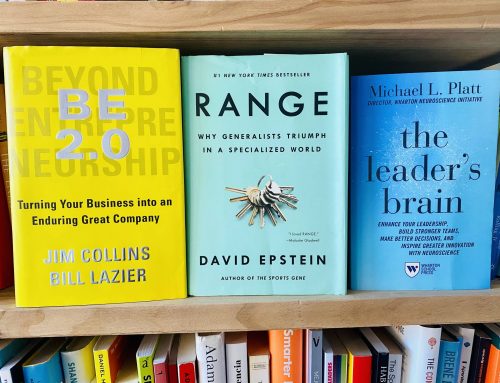Have you ever wondered where the proverb “curiosity killed the cat” comes from? It is actually a transformation of the original proverb “care killed the cat” (in this instance, “care” was defined as “worry” or “sorrow”).
Yes, curiosity didn’t killed the cat; what killed him was worry and sorrow.
Why, then, do we see curiosity as something negative? Because of our fear to the unknown.
Curiosity, far from dangerous, is a natural instinct that gives a competitive advantage to some species, allowing them to understand their environment and to adapt to the changing conditions. If we bring this forward to the present, it is not absurd to think that, in these times of constant change, curious people are the ones who best survive. Specially in unfavorable situations (such as layoffs), workers who show more curiosity (i.e.: to learn a new software, to update their skills, etc.) respond better to change and therefore increase their value in their organization.
Ever wondered what took the human being to the moon? Or to create the electric car? Our old friend curiosity.
According to George Loewenstein, one of its biggest researchers, curiosity is rather simple: it comes when we feel a gap “between what we know and what we want to know.” This gap has emotional consequences: it feels like a mental itch, a mosquito bite on the brain. We seek out new knowledge because we that’s how we scratch the itch. Curiosity acts like candy for our brain, we feel like learning more.
We usually learn things that bring us a reward (such as useful knowledge for our work), but often times we find ourselves seeking information that apparently is not relevant for us and we even feel guilty for doing this. What’s the point in studying planets if you are a lawyer? And what real reward is there to learning how to code if you work in a totally different field? The answer is simple: our minds crave distraction.
The curiosity gap is also the basic strategy of many web ads to increase traffic (the so-called clickbait). Through sensationalized headlines containing phrases like “you won’t believe what happened next” or “you’ll be shocked when you see this,” they give enough information to make the reader curious, but not enough to satisfy that curiosity without engaging a desired behavior (i.e.: clicking on a link).
Besides helping us stave off boredom, curiosity gives us other much more important rewards. Cognitive psychologists propose that we form our identities in part through the information and attitudes we gain from being curious.
Curiosity is keeping an open door to increasing our knowledge, to building our own identity.
On the other hand, several studies show that a lack of curiosity is more present in people suffering from depression or Alzheimer‘s disease. But this is not a problem related to aging. In their study, Daffner and colleagues discovered that curiosity is an engine that can be preserved despite aging.
In our next blog post we will analyze the advantages of being curious and how to leverage curiosity.
What’s the point in learning that curiosity didn’t kill the cat? It is much more important than it seems… 🙂
Curiosity acts as a spring to our talent: the more we work on it, the higher we will reach.
Have a great rest of the week,







Leave A Comment